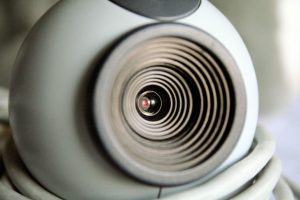The intense media spotlight of the vigorous Florida criminal defense case being mounted following the Boca Raton prostitution arrest of billionaire NFL team owner Robert Kraft has revealed some interesting facts about South Florida police use of secret surveillance cameras. One of the main takeaways for those facing criminal charges in Florida is that in the few instances the legal bases for these cameras are challenged, those challenges are often successful.
The Sun-Sentinel reported that while use of so-called sneak-and-peek or delayed-notice warrants have increased over the last decade (more in criminal drug cases than prostitution busts), it’s not something judges see every day or more than maybe a few times a month. However, when there were solicitation of prostitution charges involving these types of warrants, it was only with rare exception that prosecutors didn’t drop the charge after defendants successfully finished minimal penalties (i.e., paying small fines, completing community service).
Further, very few of those defendants even sought a motion to suppress evidence garnered as a result of these warrants – despite their questionable legality. For instance, in the Boca Raton cases, only one other defendant besides Kraft has challenged the warrant – and in that case, prosecutors dropped the charge before there was ever a hearing on that issue.
None of the defendants have asked the court’s permission to seal the videos, which means the tapes have been readily available to the media and the general public. Kraft’s Florida criminal defense lawyers are asking the court to do this based on a somewhat novel argument: That the footage should be classified as “pornography.”
Do Florida Law Enforcement Hidden Cameras Cross the Legal Line?
Questions have been raised in the past by Fort Lauderdale criminal defense lawyers in prostitution cases about whether police go too far in massage parlor stings. Court records detail numerous cases against both customers and employees/employers in major cities like Hollywood and Hallandale wherein police wore wires and completely undressed, among other undercover tactics.
But as a longtime criminal defense attorney in Fort Lauderdale, what raises the biggest red flags for me is the use of those hidden cameras.
The Sun Sentinel interviewed several defense lawyers who worked several South Florida massage parlor prostitution bust cases over the last decade. They said that while they advised clients to pursue a challenge of those warrants, the clients were reticent and ultimately chose not to do so, usually because they’re eager to simply put the episode behind them.
A defense attorney can still be successful in getting a case dismissed without such a challenge, but many agree that at some point, it would be worth a vigorous defense challenge because the legality of law enforcement techniques with hidden cameras are questionable. In many of these prostitution cases, when defense lawyers are hired early on, they are successful at the very least in getting many of the most serious charges dropped.
Challenge of warrant sufficiency is one defense lawyers in prostitution and drug cases should at the least examine this possibility. Thanks to the “fruit of the poisonous tree doctrine,” a successfully-challenged warrant will likely mean everything gleaned in the course of serving that warrant will be suppressed. In these cases, that usually means the prosecution no longer has a viable case.
Call Fort Lauderdale Criminal Defense Attorney Richard Ansara at (954) 761-4011. Serving Broward, Miami-Dade and Palm Beach counties.
Additional Resources:
Florida cops snuck cameras into massage parlors years before Robert Kraft’s prostitution sting, April 19, 2019, By Rob Freeman, The Sun Sentinel
More Blog Entries:
Florida DUI Defense Lawyer Answers: Are Roadside Blood Tests Legal?, April 19, 2019, Fort Lauderdale Criminal Defense Attorney Blog
 Fort Lauderdale Criminal Attorney Blog
Fort Lauderdale Criminal Attorney Blog


